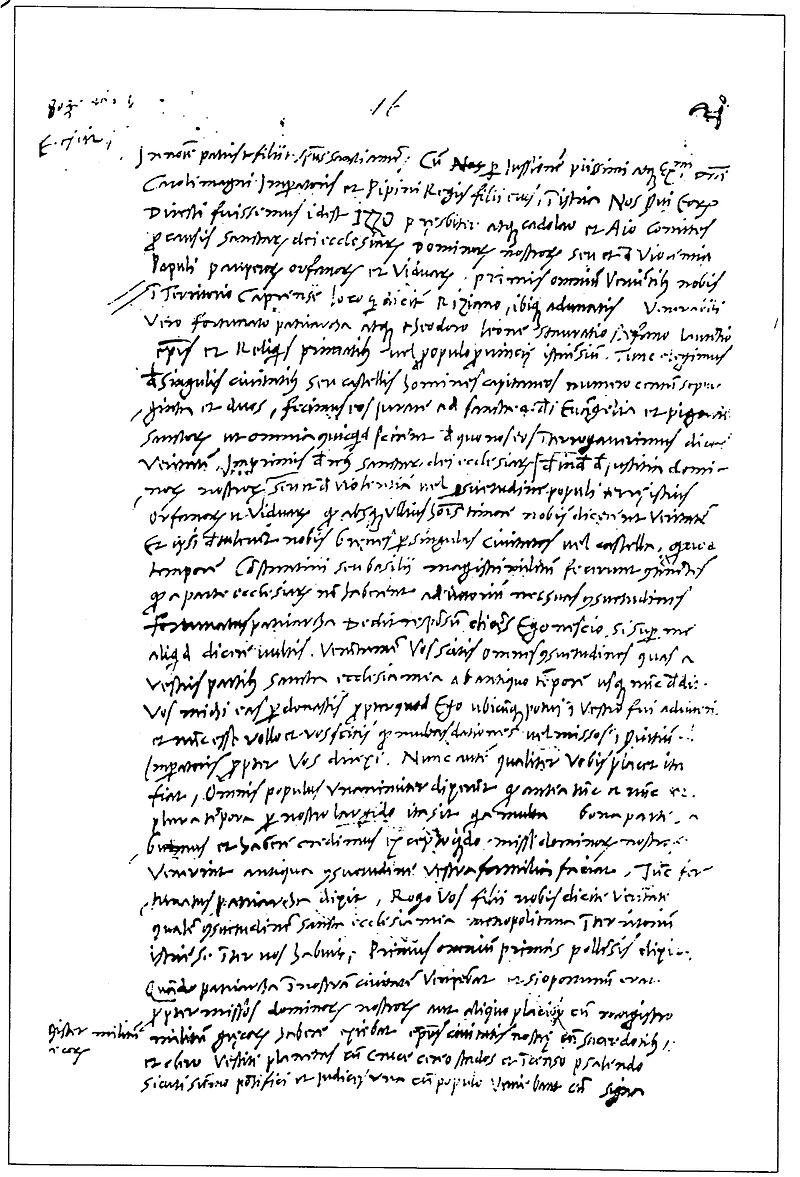From the barbarian invasions to a free municipality
After the anarchy that paralyzed the entire region at the fall of the Western Roman Empire, Trieste was first part of the Reign of Odoacer, then of that of Theodoric the Great. During the Gothic War it was occupied by Justinian I, who made it a Byzantine military colony. A few years later the city was destroyed by the Lombards (in 568, at the time of their invasion, or, more likely, in 585). Rebuilt in the following decades, but now heavily resized under the demographic profile, it passed to the Franks (788), whose sovereignty was recognized by the Byzantine emperors in 812. During the eighth century the missionary work of the priests of the bishopric of Salzburg and the patriarchate of Aquileia led to the Christianization of the Slavic communities, which the Franks from the beginning of the ninth century allowed to expand their settlements to the depopulated areas of Istria north to the territory of Trieste as documented in the Placito del Risano.
In 948 Lothair II of Italy conferred the government of the city on the bishop Giovanni III and his successors, which from that moment on to enjoy a wide autonomy, while maintaining feudal ties with the Kingdom of Italy.
Throughout the episcopal age the city was forced to defend itself from the expansionist aims of the powerful Patriarchs of Aquileia, of Venice and, subsequently, of the Counts of Gorizia. The episcopal government went into crisis around the middle of the thirteenth century: the incessant wars and quarrels, especially with Venice, had in fact emptied the city arks, forcing the bishops to get rid of some important prerogatives linked to rights that were sold to the citizens. Among the latter, the right of jurisdiction, the collection of tithes and the issue of coins. A civil administration therefore developed, dominated by the elders of the city, which gradually replaced the ecclesiastical one. This process culminated in 1295, when bishop Brissa de Toppo formally renounced his last prerogatives and ceded the government of Trieste to the city community, which was constituted, even officially, as a free municipality.








